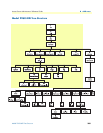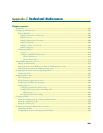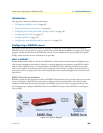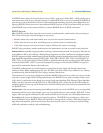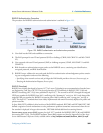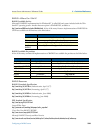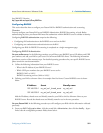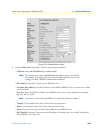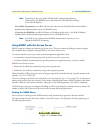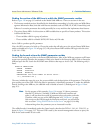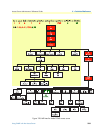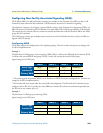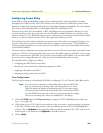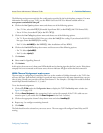
Configuring a RADIUS server 311
Access Server Administrators’ Reference Guide C • Technical Reference
Intel: RADIUS Overview
http://support.intel.com/support/si/library/bi0407.htm
Configuring RADIUS
This section describes how to configure your Patton RAS for RADIUS authentication and accounting.
Overview
You may configure your Patton RAS to use RADIUS Athentication, RADIUS Accounting, or both. Before
authenticating any users, your Patton RAS must first authenticate with the RADIUS server to validate its identity.
Configuring RADIUS authentication comprises the following:
• Configuring RAS authentication on the RADIUS server and on the RAS
• Configuring user authentication and authorization on the RAS
Configuring your RAS for RADIUS Accounting is completed on a single management page.
Configuring RADIUS Authentication
On your radius server. In the following procedure you will learn your RAIDUS server’s IP address and UDP
port numbers, and add your RAS to your server’s list of known RADIUS clients. The following information
provides an overview of the necessary steps. For detailed operating procedures for your specific RADIUS server
please consult the user documentation.
1. Collect the following information from your RADIUS server:
– What is the IP Address of your RADIUS Server?
– Which UDP port numbers does your RADIUS server use for
RADIUS (1645 or 1812)?
RADIUS accounting services (1646 or 1813)?
2. Defining your RAS as a known client: An example client list from a Cistron RADIUS server is shown
below.
Add the IP address, shared secret and friendly name for your RAS to the list of known clients at your
RADIUS server. Record the shared secret and friendly name for use in the next procedure.
On your Patton RAS. In the following procedure you will configure your RAS with the information collected
previously.
1. From your
RAS Configuration Menu
, click the second link,
Authentication
, then click the
Modify…
hyper-
link to edit the configurable parameter fields, shown below.
IP Address Secret friendly name
192.168.200.1 my_red_ras1_shared_secret my_red_ras1
192.168.200.2 my_red_ras2_shared_secret my_red_ras2





